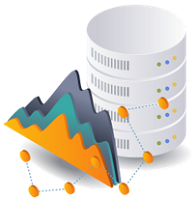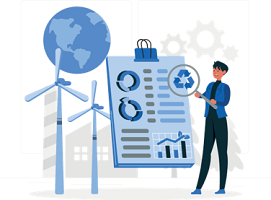
The IREPO project aims to go beyond the conventional factors that define energy poverty by developing a federated database that consolidates all relevant factors impacting energy poverty. This integrated database will overcome data limitations by integrating various data sources in near-real time, including surveys, interviews, historical databases, census data, and more.
Using machine learning algorithms, IREPO will identify patterns within these datasets, allowing for data-driven decision-making and policy support. By combining diverse data sources such as energy commodity fluctuations, renewable energy data, and economic and social indicators, IREPO will provide a comprehensive understanding of the risk factors and impacts of energy poverty.
The IREPO platform's functionality will improve over time as the machine learning algorithms benefit from the accumulation of historical data. Continuous data integration will ensure timely and standardized data in near-real time, supporting powerful decision-making tools and simulations. The project also emphasizes its development methodology based on a theoretical framework, methodology, and key performance indicators (KPIs) to ensure reproducibility and long-term adoption by policymakers and stakeholders. IREPO aims to become a reference tool for decision-making, data-driven policy support, and simulations in the field of energy poverty. By fostering collaboration among academia, industry, policymakers, and other stakeholders, IREPO seeks to have a lasting impact in addressing energy poverty and its social implications, enhancing the SEAI's role and the relevance of Irish scientific capacity in this important area.
In a nutshell, IREPO is based in three basic pillars for its development.

By developing a federated database around the factors impacting energy poverty, IREPO will be able to provide for data-driven decision-making and policy support, and a comprehensive understanding of the risk factors and impacts of energy poverty.

Bringing together experts in energy poverty (and co-related areas) is fundamental for long-lasting collaboration and adopting the IREPO platform services. Not only siloed data but also siloed expertise concerning energy poverty are counterproductive to developing data-driven policymaking, and collaboration is fundamental to overcoming these limitations.

Data analytics, machine learning, and artificial intelligence will draw from the federated database and collaborate to address energy poverty and its complexities. Accuracy and applicability will improve over time as more datasets and expertise are added to the platform.
Find below the list of IREPO's project partners.
Find below the current list of IREPO's collaborators. This page must be updated as new collaborators joint the project.